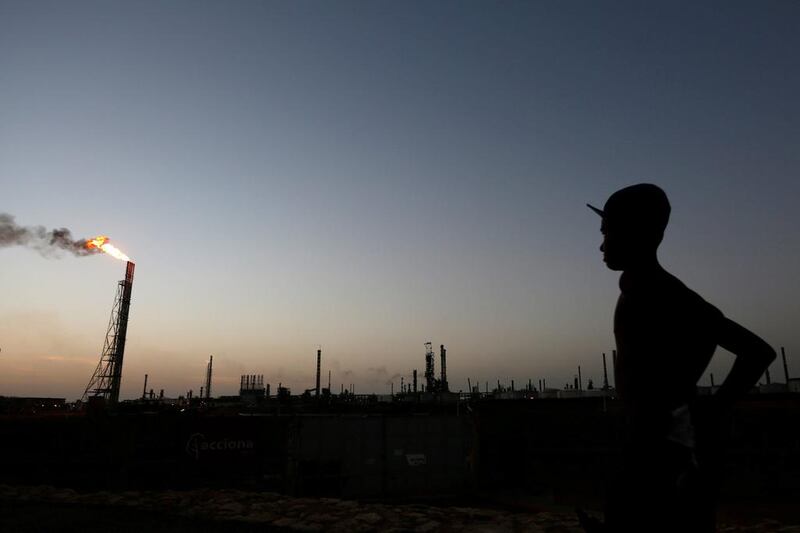European oil companies, ENI and Total, are reaping the benefits of a better oil price environment as shown in third quarter earnings.
The price of Brent crude, the international benchmark, inched closer to US$60 a barrel this week on the heels of Saudi Arabia’s crown prince signalling support to an Opec production cut extension. Brent is at its highest since mid-2015 on the back of a tightening market, possible production cut extension and conflict in Iraq.
"Oil raced higher overnight with Brent finishing in sight of the magical $60 a barrel mark, spurred on by Saudi remarks supporting the oil production cut through to the end of 2018," Jeffrey Halley, senior market analyst at futures brokerage Oanda in Singapore, told Reuters.
This has been a welcome sign for the industry as the average price of Brent for the third quarter was 14 per cent higher than the same period a year earlier. As a result, Italy's ENI as it swung to a profit for the third quarter. Adjusted net profit reached US$267 million compared to an adjusted loss of $569m last year.
“[This year] we expect to achieve organic coverage of investments and dividends, entirely paid in cash, at a Brent price of $60 a barrel as planned, or $45 a barrel when taking into account our dual exploration model initiatives,” ENI chief executive, Claudio Descalzi, said in a statement.
ENI’s production will rise 5 per cent this year to 1.84 million barrels of oil equivalent per day, while investments will decline 18 per cent.
_____________
Read more:
[ Total's $7.5b deal for Maersk Oil brings tech to Mideast ]
[ Opec will need a steady hand to exit oil output policy ]
_____________
Meanwhile French oil major, Total, reported an adjusted net income of $2.7 billion for the third quarter, a 29 per cent increase from a year earlier. Revenue jumped 17 per cent to $37bn. Patrick Pouyanne, chief executive of Total, said in a statement that the company took advantage of the favourable environment as well as its strategy to reduce its breakeven point.
Mr Pouyanne reiterated that the company would continue to have a tight hold over investments. “Organic investments were $3.1bn in the third quarter and $10bn in the first nine months - in line with the target of $14bn this year and cost reduction will be more than $3.6bn, surpassing the target for the year,” he said.
The three months ending on September 30 welcomed a new member to Total’s team as the French company bid for Maersk Oil for 7.45bn. Mr Pouyanne said at the time that the acquisition would help Total reach an even lower breakeven point, bringing the company to produce 3 million barrels of oil equivalent per day by 2019.
Total's pre-dividend organic breakeven - excluding acquisitions and divestments - is expected below $30 per barrel this year, and should continue to fall to $20 in 2019.






